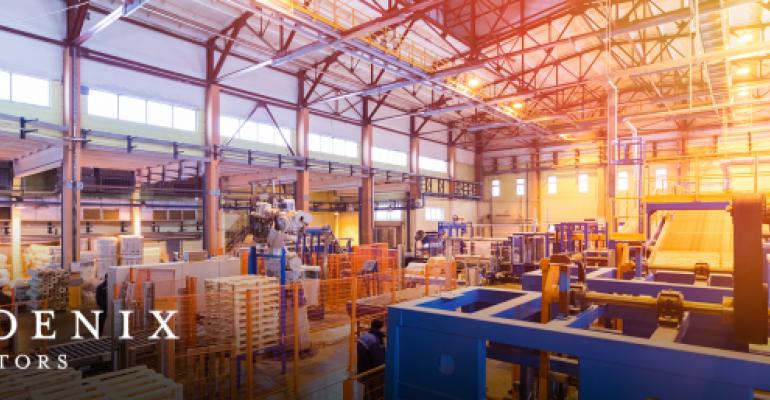Sponsored by Phoenix Investors
The phrase “manufacturing renaissance” has enjoyed regular resurgences in business media in response to various market conditions over the years. However, the term has become little more than a catchy buzzword in most of these cases, as most American businesses who kept their production assets overseas chose to leave them there. Typically, the varying economic and political volatility fueling the desire to return to U.S.-based manufacturing has tended to resolve itself before businesses could lay the groundwork for reshoring.
Now, however, the COVID-19 pandemic is about to enter its third year. As a result, the U.S. retail sector—the end customer for many manufacturers—finds itself plowing forward through another holiday peak season tempered by limited access to overseas suppliers. To make matters worse, the inventory items retailers manage to access will likely get stuck on container ships that can’t get into the port to get unloaded on time.
This ongoing supply chain crisis will last well into 2022, with some aspects even expected to drag on into 2023. These issues create a perfect storm that should drive American companies to shorten their supply chains to achieve better resiliency.
Which Manufacturers Will Reshore?
As consumers and retail businesses demand more reliable access to manufactured goods in the face of global supply chain disruption, the idea of a manufacturing renaissance seems much less farfetched than it did a few years ago. The industrial real estate sector must prepare for a wave of incoming manufacturers looking for factories to call home on or near American soil. Here are some manufacturing sub-sectors that real estate stakeholders can expect to set up a wider American production footprint.
Microchips/Semiconductors
We’re a society that runs on advanced electronics, and virtually all popular consumer and commercial electronics require microchips. Unfortunately, the United States produces only 12% of the world’s microchips. A microchip shortage has delayed or reduced production for cars and trucks, mobile devices, gaming consoles, fitness equipment, home appliances, and much more.
In response to this overwhelming microchip shortage that has created production bottlenecks across industries, the Biden administration included $52 billion in incentives as part of a broader bill to entice semiconductor manufacturers back to the United States. These incentives will make it easier for chip manufacturers to reshore production.
Consumer Goods
Consumer-facing brands have created an expectation for lower prices due to decades of manufacturing goods in low-cost outsourcing locations. Poor cost-competitiveness has often made it difficult for American-made brands to compete in areas such as clothing, toys, housewares, and appliances, among many others.
Now, however, American shoppers have become more accustomed to paying a higher price tag throughout the pandemic—especially more recently, as inflation drives up the cost of everyday goods. Consumers have also demonstrated a willingness to pay more for sustainable brands, which provides an opportunity for returning manufacturers to green up their U.S. operations. As U.S. consumers become more accustomed to higher price tags, it will become easier for brands with a “Made in the USA” tag to market their goods.
Aftermarket Parts
A disrupted global supply chain makes it difficult for original equipment manufacturers (OEMs) to meet production quotas. As a result, new inventory isn’t as available for consumers and businesses, who have to get more out of the equipment they already have.
Fleets and private owners need to put more miles on vehicles, offices get forced to delay buying that new copy machine until next year, and consumers need to stretch out the usefulness of everything from bicycles to furniture. These conditions create an opportunity for aftermarket parts manufacturers to set up shop in the United States and serve the businesses and do-it-yourselfers out there trying to extend the service life of the things they own.
These are just a few manufacturing sub-sectors that will find opportunities to become a part of an American manufacturing renaissance. As businesses shift their financial concerns from production to total cost of ownership, the reshoring equation will become easier to solve for manufacturers across industries.
About Phoenix Investors
Founded by Frank Crivello in 1994, Milwaukee-based Phoenix Investors and its affiliates (collectively “Phoenix”) are a leader in the acquisition, development, renovation, and repositioning of industrial facilities throughout the United States. Utilizing a disciplined investment approach and successful partnerships with institutional capital sources, corporations and public stakeholders, Phoenix has developed a proven track record of generating superior risk adjusted returns, while providing cost-efficient lease rates for its growing portfolio of national tenants. Its efforts inspire and drive the transformation and reinvigoration of the economic engines in the communities it serves. Phoenix continues to be defined by thoughtful relationships, sophisticated investment tools, cost efficient solutions, and a reputation for success.





